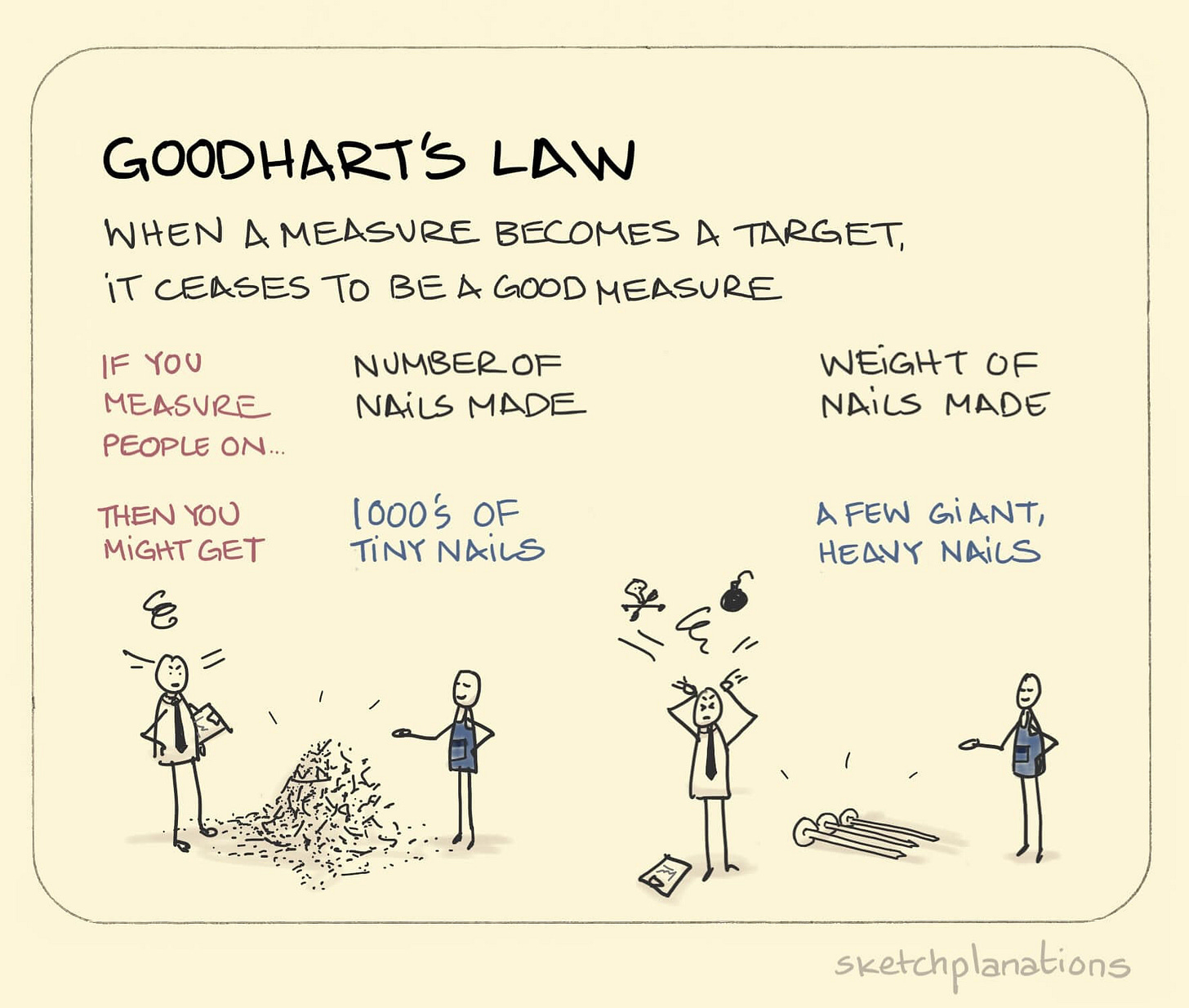The dictionary of essential intellectual crutches
Hello party people! We are back, this time with some new and completely different to what I normally do on this blog. As the title suggests the bulk of this piece will be in dictionary style i.e. defining terms and concepts I have called ‘intellectual crutches’.
In some cases I had to make up phrases because I didn’t already know / couldn’t find phrases to explain the concepts.
In contrast to other pieces this is what I’ll call a ‘living’ piece i.e. it will be updated regularly as and when I have new terms to add to it. In cases where I have made-up phrases and something already exists, I am relying on you to point these out so I can update the piece.
If you haven’t already, I’d encourage you sign up so you get these articles directly into your inbox. And if you have signed up, spread the word!
Anthropic determinism
A phrase I coined because I couldn’t find the right wording: Anthropic Determinism. By this I mean the understanding that the way in which the world is structured is not fixed and we could just as easily structure the world in a different way, particularly as it relates to social phenomenon.1
Anthropocene
As it refers to eras that have existed on the earth, the Anthropocene is the era in which Humans have been the dominating influence on the earth.2
Campbell's law / Goodhart's law
I already wrote a piece on this so go check that out for a detailed explanation. The diagram below also explains it quite well.3
Fiat
It literally means something comes into effect because of (government) degree i.e. we let it be. This is commonly used to describe currency i.e. our currency is fiat currency. The dollar, euro, sterling etc don't have intrinsic value, the value is because the government have decreed it and we all go along with it.4
Last Thursday-ism5
This one is pretty fun as it highlights the limits on what we can prove and tests what it means to "know" different things. Last Thursday-ism is the belief that EVERYTHING was made last Thursday. If you retorted "but I remember X happening 15 years ago" or "but I got Y object last year" it can all be explained away by the fact everything was made last Thursday. There is no way to prove that last Thursday-ism is false. Although I am going to say I don't believe in last Thursday-ism.
Lindy effect
Related to Pareto distribution in some way. The Lindy effect describes the future life expectancy of non-perishable things e.g. technology, books, ideas etc. Human don’t fall into that category. The effect describes how the longer the aforementioned “thing” has survived, the longer it is going to survive.
Example: if a book has been around for 1 year, its future life expectancy is 1 year. If the book has been around 10 years, its future life expectancy is 10 years. In short, mortality decreases with time.6
Sadly for us, humans are not lindy, being alive for 40 years does not imply we will be around for 40 more, quite the opposite in fact.7
Path dependency
This might seem obvious when I say it but path dependence is when a feature of (most often) society and/or the economy is not based on the present conditions but a sequence of previous actions each of which lead to a specific outcome.
Pareto distribution
Pareto distribution is commonly known as the '80-20' rule i.e. 20% of the inputs produce 80% of the outputs. The first example was the observation that 80% of the land in 19th Century Italy was owned by 20% of the population.
The grey zone
From Carothers (2002) when describing the politics of countries as it relates to how democratic they are:
"They have some attributes of democratic political life, including at least limited political space for opposition parties and independent civil society, as well as regular elections and democratic constitutions. Yet they suffer from serious democratic deficits, often including poor representation of citizens' interests, low levels of political participation beyond voting, frequent abuse of the law by government officials, elections of uncertain legitimacy, very low levels of public confidence in state institutions, and persistently poor institutional performance by the state"
The yellow M&Ms
This describes the use of miniscule observable indicators to signal everything is as it should be. I heard it from my boss who was telling me an apocryphal story about a touring rock band who requested no Yellow M&Ms in their rooms. The reason wasn't pedantry but to help reassure the band that all the things out of their control needed for a successful tour are being taken care of given that the small, annoying and meaningless yellow M&Ms request was taken care of.
Reset button device fallacy
So I couldn’t think/find a phrase to encapsulate what I meant so I coined the term ‘reset button device fallacy’. In entertainment the reset button is a technique used to go back to the status quo before a significant plot event - think of the “and it was all just a dream” trope.
The fallacy part comes in as I am describing a flawed logic as it relates to specific social/political/economic conditions. This is the type of thinking where you propose “going back to doing policy X or Y.” Essentially its an attempt to recreate the benefits of said social/political/economic conditions by hitting the big old reset button.
The reason why this a fallacy is because going back to a status quo isn’t the same as that status quo existing as it did previously. From the previous term path dependency we know that the sequencing of events and HOW you reached the specific status quo is important, not just the fact you are there.
In short: going back to something isn’t the same as being there in the first place.
Unknown unknowns
Another one in the bucket of "limits of our knowledge". Donald Rumsfeld put it best:
"there are known knowns; there are things we know we know. We also know there are known unknowns; that is to say we know there are some things we do not know. But there are also unknown unknowns—the ones we don't know we don't know. And if one looks throughout the history of our country and other free countries, it is the latter category that tends to be the difficult ones"
Zugzwang
Comes from chess, it describes how any move you make will weaken your position. In the chess board below (taken from Fischer vs Taimanov 1971 game 2) black is in Zugzwang because a King move means you lose the Knight and the Knight move means the pawn is able to advance.8
Although I use it to describe any phenomenon in which whatever you do is disadvantageous compared to the status quo (Brexit comes to mind).
I wont end with my customary ‘so there we go’ because this is only the start of the dictionary. I’d love to see where this goes and please share with me your intellectual crutches so I can add them to the dictionary.
See David Graeber’s “The Utopia of Rules” for a rather beautiful quote on the point.
I’d recommend John Green’s amazing podcast: The Anthropocene Reviewed.
See Hannah Fry’s excellent essay in the New Yorker for examples of this playing out in real life in various domains.
For an interesting take I recommend David Graeber’s “Debt: the first 5,000 years”.
A variation of this is the “Five-minute hypothesis” coined by Bertrand Russell.
https://en.wikipedia.org/wiki/Lindy_effect
See Nassim Taleb’s ‘The Black Swan’, ‘Antifragile’, & ‘Skin in the game’ for a better explanation.
As an aside if anyone wants to play Chess with me my Chess.com username is Ubermarx (I’m not very good).







